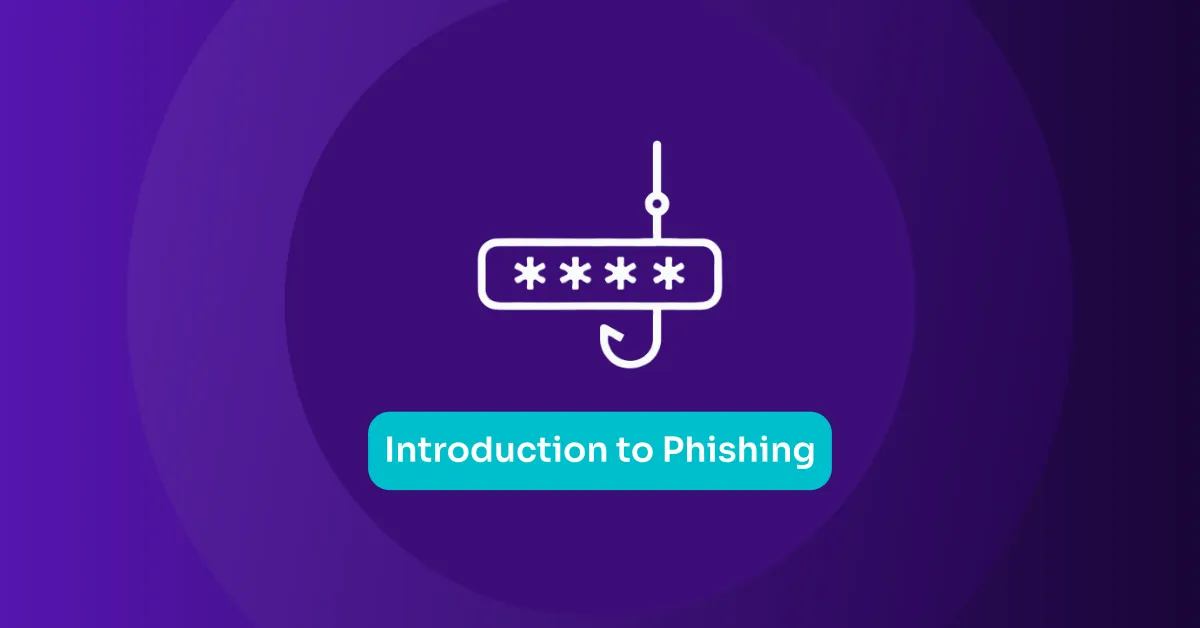
Oct 3, 2023
The Role of Continuous Learning in Retaining Cybersecurity Experts
Delve into the vital role continuous learning has in retaining cybersecurity experts and explore how ongoing education and professional development programs can play a critical role.
As businesses, governments, and individuals increasingly rely on interconnected systems and data, the need for robust cybersecurity measures has never been more critical. Yet, amid this era of escalating cyber threats, there is an ongoing struggle that organizations face: the cybersecurity skills gap.
The cybersecurity skills gap is the stark disparity between the demand for skilled cybersecurity professionals and the limited pool of available talent. This challenge has been exacerbated by the current climate, where many organizations find themselves under hiring freezes and shifting their budgets to different priorities. While cybersecurity remains paramount, organizations are grappling with the dilemma of securing their digital assets while minimizing costs.
As organizations strive to bridge this skills gap and navigate constrained budgets, they are discovering that it’s not just about hiring new talent but also about retaining the cybersecurity experts they already have. The importance of retaining these experts cannot be overstated.
In this blog post, we will delve into the vital role of continuous learning in retaining cybersecurity experts and exploring how ongoing education and professional development programs can play a critical role.
The importance of retaining cybersecurity experts
Retaining cybersecurity experts takes on new significance in the current climate. These experts possess invaluable institutional knowledge about an organization’s systems, vulnerabilities, and specific security challenges. Losing them can be a costly setback, both financially and in terms of security posture.
Moreover, experienced cybersecurity professionals have a deep understanding of an organization’s unique security landscape. Their expertise extends beyond technical knowledge; it includes insights into the organization’s culture, practices, and risk tolerance. Replacing them with new hires, even when budgets permit, can disrupt this delicate balance.
Continuous learning as a retention strategy
Continuous learning is a retention strategy that can be highly effective in the field of cybersecurity. Here’s how it plays a pivotal role:
- Professional growth: Cybersecurity professionals are often passionate about their field and eager to learn. By providing opportunities for continuous learning, organizations demonstrate a commitment to their employees’ professional growth. This can be achieved through access to training, certifications, workshops, and conferences.
- Skill enhancement: Continuous learning allows experts to deepen their expertise in specific areas and stay relevant in the face of evolving threats. This not only benefits the individual but also adds value to the organization.
- Adaptation to new threats: The ability to adapt to new threats quickly is critical in cybersecurity. Continuous learning ensures that professionals are aware of emerging threats and can proactively develop strategies to counter them.
- Retention of top talent: When organizations invest in their employees’ development, they demonstrate a commitment to their well-being and career advancement. This commitment fosters loyalty and can deter talented professionals from seeking opportunities elsewhere.
- Compliance and regulations: The regulatory landscape in cybersecurity is constantly evolving, with new laws and compliance requirements emerging regularly. Continuous learning helps experts stay ahead of these changes, ensuring that the organization remains compliant and avoids legal pitfalls.
- Innovation: Cybersecurity is not just about defending against known threats; it’s also about innovation. Continuous learning encourages professionals to think creatively and come up with novel solutions to security challenges. This innovative spirit can drive an organization’s cybersecurity strategy forward.
Implementing continuous learning initiatives
To effectively retain cybersecurity experts through continuous learning, organizations should consider the following steps:
1. Create a learning culture
Building a learning culture within your organization is foundational to retaining cybersecurity experts through continuous learning. This entails creating an environment where learning is not only encouraged but deeply ingrained in the company’s ethos.
Start by encouraging senior leaders to actively endorse and participate in continuous learning initiatives. When top management visibly embraces learning, it sets a compelling example and underscores the organization’s commitment to skill development.
Dedicate both financial and temporal resources to support learning efforts. Budgets for training programs, workshops, and educational materials should be allocated to ensure that cybersecurity professionals have the tools they need to grow.
Additionally, recognize and reward employees who engage proactively in continuous learning. This recognition can take various forms, such as awards, promotions, or public acknowledgment of their achievements in team meetings or company communications.
There should also be a place for platforms or forums that facilitate knowledge sharing among your cybersecurity experts. These spaces foster a sense of community and provide opportunities for experts to share insights, discoveries, and best practices with their peers.
2. Invest in training
Investing in training programs is a direct and vital means of empowering your cybersecurity experts to enhance their skills and knowledge. Customize training programs to meet the specific needs of your cybersecurity team. Identify skill gaps through regular assessments and provide targeted training to address these gaps effectively.
Provide a range of learning resources to cater to different learning preferences. These resources may include online courses, cyber ranges, webinars, workshops, conferences, and access to cutting-edge cybersecurity tools. Ensuring accessibility to various learning formats accommodates the diverse learning styles of your team.
Allocate a dedicated budget specifically for continuous learning initiatives. This budget should remain flexible enough to adapt to evolving training needs and seize new opportunities as they arise.
3. Mentorship and knowledge-sharing
Encouraging mentorship and knowledge-sharing practices within your organization can significantly enhance the retention of cybersecurity experts. This step involves encouraging experienced cybersecurity professionals to take on mentoring roles, particularly with junior staff. Pairing less-experienced team members with seasoned experts allows for knowledge transfer, skill development, and the nurturing of a collaborative learning environment.
Create mechanisms for experts to share their insights, experiences, and best practices with their colleagues. This might involve regular team meetings, cross-functional workshops, or dedicated knowledge-sharing sessions.
4. Stay informed
Staying informed about the latest trends and best practices in cybersecurity is essential to ensure that your organization’s learning initiatives remain relevant and effective. To achieve this, consider conducting ongoing assessments of the evolving skills and knowledge required in the cybersecurity field. Stay attuned to emerging threats, technologies, and regulatory changes that impact your organization’s security posture.
Encourage your cybersecurity professionals to engage with industry thought leaders, follow cybersecurity news, and actively participate in relevant forums, conferences, and webinars. Sharing these insights within your organization can spark discussions and inspire innovation.
Ensure that your training materials and curriculum are updated to align with the dynamic nature of the cybersecurity landscape. Ensure that your training content reflects the latest industry standards and practices.
5. Measure and assess
To gauge the effectiveness of your continuous learning initiatives and ensure that they contribute to retaining cybersecurity experts, establish a framework for measurement and assessment, including:
- Defining Key Performance Indicators (KPIs): Identify KPIs that are relevant to your organization’s cybersecurity goals, such as reduced security incidents, improved response times, or enhanced employee satisfaction. These metrics will serve as benchmarks for progress.
- Regular evaluation: Periodically evaluate the impact of your continuous learning initiatives. Assess whether employees are acquiring new skills and knowledge and whether security incidents are decreasing as a result of these efforts.
- Feedback loops: Encourage feedback from cybersecurity professionals about the effectiveness of training programs, mentorship initiatives, and knowledge-sharing platforms. Use this feedback to refine your continuous learning strategies and adapt to evolving needs.
Conclusion
Retaining cybersecurity experts is a critical challenge in today’s digital landscape, especially when hiring freezes and budget constraints are in place. Continuous learning is a powerful strategy that not only helps professionals stay updated with the ever-changing threats but also demonstrates an organization’s commitment to their growth and well-being. By investing in continuous learning initiatives, organizations can enhance their cybersecurity posture and retain the talented experts who defend their digital assets. In this dynamic field, continuous learning is not just an option; it’s a necessity for both professionals and organizations.
At OffSec, we understand the importance of continuous learning and skill development play in the retention of cybersecurity experts and top talent. We offer a range of industry-recognized cybersecurity courses and training, suited for your organization’s specific needs. Contact us to learn more.
Stay in the know: Become an OffSec Insider
Get the latest updates about resources, events & promotions from OffSec!
Latest from OffSec

Research & Tutorials
CVE-2024-12029 – InvokeAI Deserialization of Untrusted Data vulnerability
CVE-2024-12029: A critical deserialization vulnerability in InvokeAI’s /api/v2/models/install endpoint allows remote code execution via malicious model files. Exploit risk for AI art servers.
Jul 17, 2025
0
Research & Tutorials
What is Phishing? Introduction to Phishing Demo (for Beginners)
Learn how phishing attacks work and how to spot them. Watch OffSec’s animated video to protect yourself from scams, spoofed sites, and social engineering.
Jul 15, 2025
2 min read

Research & Tutorials
CVE-2025-27636 – Remote Code Execution in Apache Camel via Case-Sensitive Header Filtering Bypass
Discover the critical Apache Camel vulnerability (CVE-2025-27636) that allows remote code execution via case-sensitive HTTP header manipulation in the exec component. Learn how attackers exploit this flaw and how to mitigate it.
Jul 10, 2025
2 min read